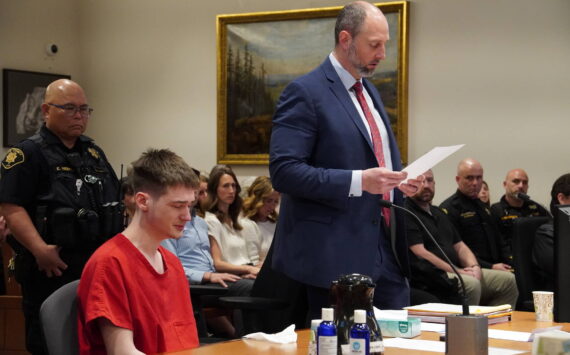As this week’s 393-obituaries-long print edition underscores, death is one of the ways of keeping score in America’s wars. But as we reported in 2004 and detailed in a book, Home Front: The Government’s War on Soldiers, it’s the lesser-noticed postwar toll that truly determines the country’s losses. Already, rising numbers of soldier suicides and battlefield brain injuries are among indicators of the lasting effects the current wars in Afghanistan and Iraq will have on families, society, and the military/veterans healthcare systems. This toll is building while we are still counting bodies from the last Gulf War 20 years ago. As SW’s sister paper, the Dallas Observer, reports this week, a University of Texas study has confirmed that Gulf War Syndrome–once written off by the Pentagon as something of an imaginary illness–is a disabling physiological condition that afflicted tens of thousands of U.S. troops.Dr. Robert Haley, chief epidemiologist at UT Southwestern, and a cadre of clinicians and researchers have struggled with the government for some 18 years for research funding and to have the syndrome recognized as a legitimate war injury caused by chronic exposure to minimal amounts of sarin gas, the Observer says.A Department of Veterans Affairs report on the syndrome–now officially labeled Gulf War Illness–found that at least 25 percent of veterans deployed in Iraq were thought to have symptoms. That helps explain how the “100 hour” 1991 war–with a U.S. troop death toll of 148–later led to more than 320,000 veterans of the 696,000 deployed seeking medical treatment from the VA.As we noted in 2004, the term “syndrome” carried the implication that such ailments were the imaginary manifestations of whiners and opportunists seeking to get on the government dole. But too many thousands of Gulf veterans took ill or died for the government to continue insisting there was no distinct correlation to their encounters with the battlefield-related combination of chemical releases, radioactive munitions, oil-fire fumes, and unapproved investigative drugs and vaccines, along with antibotulism and antimalarial medicines and pesticides. Gulf veterans refer to this volatile concoction as the cocktail effect. Their ailments can include neurological, skin, cardiac, gastro-intestinal, and urinary tract ailments, commonly manifested as chronic fatigue, muscle and joint pain, as well as difficulties with concentration and memory. They are, at best, life-limiting complications. At worst, they are fatal.”I don’t know why the government, if it cares so much about its troops, isn’t saying, ‘My God, 200,000 disabled in that war, 11,000 dead! [in the decade following the war]. What did we do?'” Joyce Riley of the American Gulf War Veterans Association said. “Instead, if you make the mistake–as some veterans have–of going in and saying you have Gulf War illness, that just gets you a trip to the psych department. You’re an instant head case. That way they don’t have to treat you medically. They’ll give you Prozac or Zoloft and send you on your way.” Unfortunately, it’s not a new attitude or phenomenon. Mysterious battle illnesses can be traced back to the “irritable heart” of the Civil War–subsequently called the “soldier’s heart” and eventually found to be a psychological disturbance not unlike shell shock in World War I, battle fatigue in World War II and Korea, and post-traumatic stress disorder in Vietnam. The most questioned war wound is the one that happens to a warrior’s mind. And with an estimated 360,000 U.S. troops already having suffered brain injuries in Iraq and Afghanistan, the current wars will likely produce the largest number of veterans ever required to prove their disabilities. History guarantees it will be another war on soldiers fought with Prozac, Zoloft, and lip service. “Use ’em, abuse ’em, and lose ’em,” the late Col. David Hackworth told me, referring to troops and veterans. “This has been the U.S. military mantra since before George Washington slapped on a pair of boots.”Follow The Daily Weekly on Facebook and Twitter.
More Stories From This Author
Man who killed four in Renton crash sentenced to over 17 years in prison
The prosecutor reported that he was traveling at 112 miles per hour when he crashed into the victims.
FEMA denies funds to WA for damage caused by 2024 ‘bomb cyclone’
Gov. Bob Ferguson says federal funds are needed to address $34 million in damage caused by the storm, and that the state will appeal.
SAVE Act could disenfranchise millions of voters
Congressman reports law could cost Washingtonians over $361 million just to register to vote.







